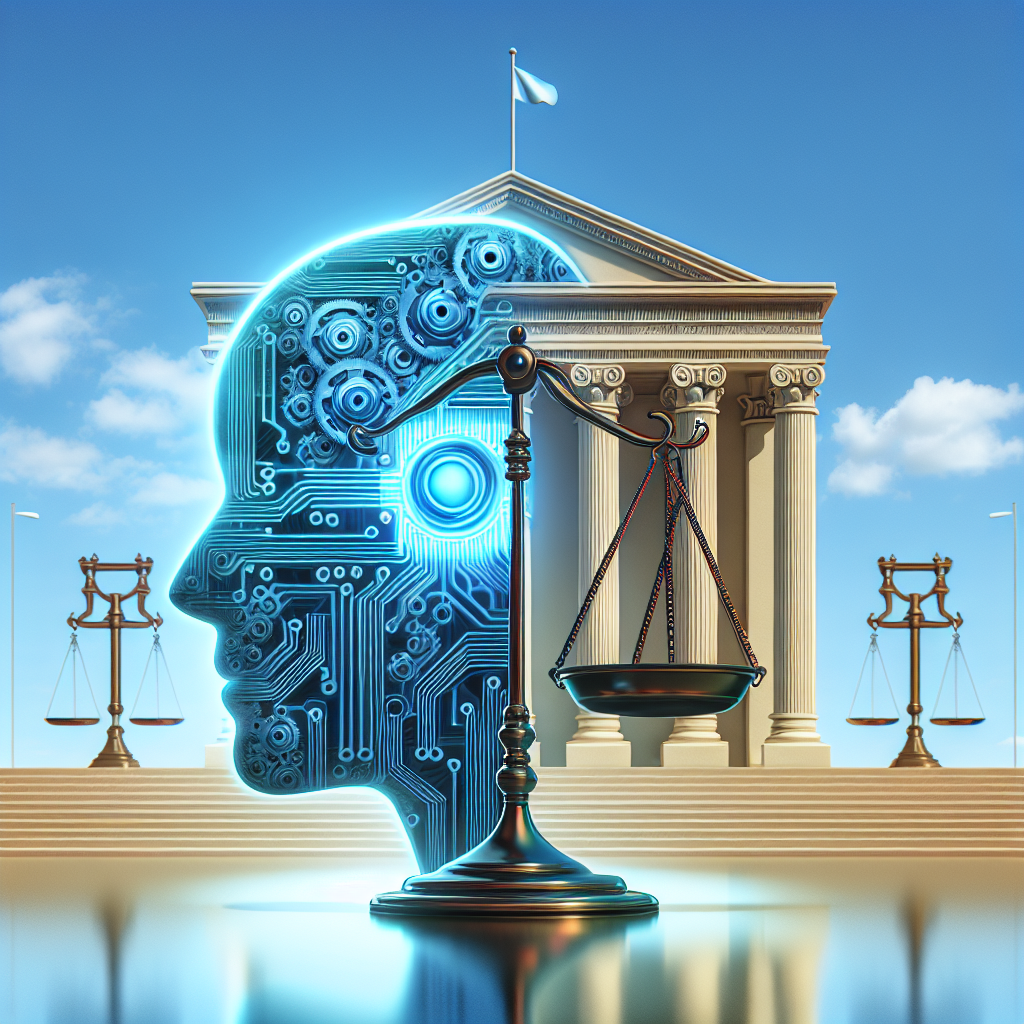Artificial Intelligence (AI) has become increasingly prevalent in various aspects of society, including government operations. While AI can bring numerous benefits, such as improved efficiency and decision-making, it also raises significant ethical concerns. In this article, we will explore the ethical implications of AI in government and discuss some frequently asked questions on the topic.
Ethical Implications of AI in Government
1. Transparency and Accountability
One of the key ethical challenges of AI in government is the lack of transparency and accountability. AI algorithms are often complex and opaque, making it difficult to understand how they reach their decisions. This lack of transparency can lead to concerns about bias and discrimination in decision-making processes, as well as challenges in holding government entities accountable for their actions.
For example, if an AI algorithm is used to determine eligibility for government benefits, there may be concerns that the algorithm is biased against certain groups of people. Without transparency into how the algorithm works, it can be challenging to identify and address any biases that may exist.
2. Privacy and Data Security
AI systems in government often rely on vast amounts of data to make decisions. This raises significant privacy and data security concerns, as sensitive personal information may be collected, stored, and analyzed without individuals’ knowledge or consent. There is a risk that this data could be misused or leaked, leading to privacy violations and potential harm to individuals.
For instance, if AI systems are used for surveillance purposes, there may be concerns about the government tracking and monitoring individuals without their consent. This could infringe on individuals’ right to privacy and lead to a chilling effect on freedom of expression and association.
3. Fairness and Equity
Another ethical consideration of AI in government is the need to ensure fairness and equity in decision-making processes. AI algorithms can inadvertently perpetuate existing biases and inequalities, leading to discriminatory outcomes for marginalized groups. It is essential for government entities to actively address these biases and strive to create more equitable systems.
For example, if AI is used in the criminal justice system to predict recidivism rates, there may be concerns that the algorithm is biased against certain racial or socioeconomic groups. It is crucial for government officials to carefully evaluate and mitigate any biases in AI systems to ensure fair and just outcomes for all individuals.
4. Autonomy and Accountability
AI systems have the potential to automate a wide range of government functions, from administrative tasks to policy decisions. While automation can lead to increased efficiency and cost savings, it also raises questions about the accountability of AI systems. Who is ultimately responsible for the decisions made by AI algorithms? How can individuals challenge or appeal decisions made by AI systems?
Government entities must ensure that there are mechanisms in place to hold AI systems accountable for their actions and ensure that individuals have recourse if they believe they have been unfairly treated by an AI algorithm. This includes establishing clear lines of responsibility and oversight for AI systems and providing avenues for individuals to challenge decisions made by AI.
Frequently Asked Questions
1. Can AI systems be biased?
Yes, AI systems can be biased if they are trained on data that reflects existing biases and inequalities in society. It is essential for government entities to carefully evaluate and mitigate biases in AI systems to ensure fair and just outcomes for all individuals.
2. How can government officials ensure transparency and accountability in AI systems?
Government officials can promote transparency and accountability in AI systems by documenting how algorithms are developed and implemented, conducting regular audits of AI systems, and providing avenues for individuals to challenge decisions made by AI algorithms.
3. What are some best practices for ensuring fairness and equity in AI systems?
Some best practices for ensuring fairness and equity in AI systems include diversifying training data to reflect a wide range of perspectives and experiences, regularly testing algorithms for biases, and involving stakeholders from diverse backgrounds in the development and evaluation of AI systems.
4. How can individuals protect their privacy in the age of AI in government?
Individuals can protect their privacy by being mindful of the information they share online, advocating for strong data protection laws, and staying informed about how their data is being collected and used by government entities.
In conclusion, AI has the potential to transform government operations and improve services for citizens. However, it is crucial for government entities to address the ethical implications of AI in government, including issues of transparency, accountability, privacy, fairness, and equity. By carefully evaluating and mitigating these ethical concerns, government officials can harness the power of AI to create more efficient, responsive, and equitable systems for all individuals.

